About
The group’s research addresses the design and development of advanced signal processing techniques and the interpretation of biomedical signals to improve non-invasive monitoring, diagnosis, disease prevention and pathology treatment.
The group focuses its research in a translational way to promote the transfer of our scientific and technological contributions.
Currently, our prototypes are used in hospitals for research purposes and for future industrial developments.
Our main objective is to improve diagnosis capability through the characterization of physiological phenomena and to enhance early detection of major cardiac and respiratory diseases and sleep disorders. We propose and design new signal processing algorithms and develop new biosignal databases, with the collaboration of our hospital partners.
To validate the clinical information of new surface signals, we have developed specific invasive/non-invasive protocols and animal models.
Obstructive Sleep Apnea and Chronic Obstructive Pulmonary Disease
- Novel non-invasive measurements of neural inspiratory drive and time from invasive and noninvasive recordings of respiratory activity (Scientific Reports 2018, 8:16921; IEEE Journal Biomed Health Informatics 2018; IEEE-EMBC 2018: 3342-3345 )
- Evaluation of a wearable device to determine physiological parameters from surface diaphragm electromyography (IEEE Journal Biomed Health Informatics 2018) acquired by concentric ring electrodes (IEEE-EMBC 2018: 3350-3353)
- Characterization of the microvascular cerebral blood flow response to obstructive apneic events (Neurophotonics 2018, 5: 045003) with the ICFO and the Hospital de Sant Pau.
- Improvement of a front-end step for a wearable device for biosignals recording for COPD and OSA patients (IEEE Transactions on Biomedical Circuits and Systems 2018, 12: 774 – 783) with the imec, Eindhoven (NL).
Cardiac and cardiorespiratory diseases
- Novel eingvalue-based method for time delay estimation of respiratory signals in patients with chronic heart failure (Digital Signal Processing 2018, 75: 107-119), with Lund University,Sweden, and University of Zaragoza.
- Cardirespiratory phase synchronization during mental stimuli in healthy subjects (IEEE-EMBC 2018: 5298-5301)
- Estimation of sinus arrhythmia to classify ischemic cardiomyopathy (IEEE-EMBC 2018, 4860-4863) and artifact reconstruction of blood pressure signals (IEEE-EMBC 2018, 4864-4867)
Neurorehabilitation
- Characterization of upper limb muscle’s EMG activity during reaching and grasping (NeuroRehabilitation-ICNR 2018)
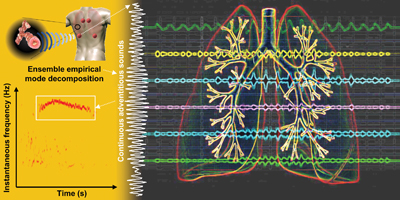
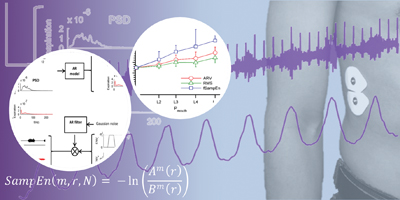
Staff
Projects
| INTERNATIONAL PROJECTS | FINANCER | PI |
|---|---|---|
| DEEPDREAM · A Data-drivEn computational mEthod for PersonalizeD healthcare in chronic REspiratory diseases through big-dAta analytics and dynamical Modelling (2020-2022) | European Comission · Marie Curie | Daniel Romero |
| NATIONAL PROJECTS | FINANCER | PI |
|---|---|---|
| SappHiRES · Ecosistema de salud inteligente para la medicina personalizada y la asistencia sanitaria en enfermedades respiratorias y trastornos del sueño (2019 – 2021) | Ministerio de Ciencia, Innovación y Universidades | Raimon Jané |
| FINISHED PROJECTS | FINANCER | PI |
|---|---|---|
| M-OLDOSA Multimodal analysis and m-Health tools for diagnostic and monitoring improving of Obstructive Lung Disease and Obstructive Sleep Apnea patients | CIBER-BBN, Spain | Raimon Jané |
| MultiTools2Heart Multiscale computational tools to improve diagnosis, risk assessment and treatment in prevalent heart diseases | CIBER-BBN, Spain | Juan Pablo Martínez Cortés |
| Health Risk Assessment and Stratification of patients admitted in the Home Hospitalization & Early Discharge (2019-2020) | Fundació EURECAT | Raimon Jané |
| Multimodal invasive and non-invasive biomedical signal interpretation and modelling in cardiac, respiratory and neurological disorders | MINECO, I+D-Investigación fundamental no orientada | Raimon Jané |
| M-Bio4Health Biomarcadores fisiológicos multimodales para la monitorización no-invasiva y cuidado a domicilio de pacientes EPOC con comorbilidades | MINECO, Retos investigación: Proyectos I+D | Raimon Jané |
| Study on software comparison of audio recordings and correlation to SAHS events | R+D contract with Audiodontics, funded by the NIH (USA) | Raimon Jané |
| Novel m-Health tools for unobtrusive sensing and management improving of Obstructive Sleep Apnea patients at home | Obra Social La Caixa | Raimon Jané |
| Non-invasive multimodal physiological biomarkers for monitoring COPD patients with comorbidities (2017-2018) | With King’s College London, funded by the European Respiratory Society (ERS-LTRF 2017) | Raimon Jané |
Publications
Equipment
- Research laboratory with full equipment for acquisition and processing of biomedical signal to test new sensors and to define clinical protocols (preliminary tests and control subjects)
- Non-invasive Vital Signs Monitor for small lab animals (mice and rats) (Mouse-Ox Plus)
- BIOPAC system for multichannel cardiac and respiratory biomedical signal acquisition
- Databases of biomedical signals from hospitals and animal laboratories
- Snoring analyzer equipment (SNORYZER)
- Sensors, electrodes and microphones to obtain cardiac, respiratory, neural, muscular and sleep biomedical signals
- Polisomnographic equipment available in the Sleep Laboratory of collaborator hospital
- Beat to beat arterial blood pressure and haemodynamic monitor equipment
- Computing server for high performance biomedical signals
- Threshold™ IMT (Inspiratory Muscle Trainner) for respiratory muscle training (Phillips™)
- Robust wearable wireless sensor device Shimmer3 (Shimmer Research Ltd., Dublin, Ireland).
Collaborations
- Dr. J. Mark Ansermino
Department of Anesthesiology, Pharmacology and Therapeutics, University of British Columbia, Vancouver, Canada - Prof. Antonio Bayes Genis
Grup ICREC, Servei Cardiología Hospital Universitari Germans Trias i Pujol, Barcelona - Dr. Salvador Benito
Hospital de la Santa Creu i Sant Pau, Barcelona - Prof. Dr. Konrad Bloch
Pulmonary Division, University of Zurich, Switzerland - Prof. Armin Bolz
Institute of Biomedical Engineering, University of Karlsruhe, Germany - Prof. Manuel Doblaré
Grupo de Mecánica Estructural y Modelado de Materiales, Universidad de Zaragoza, Spain - Prof. Guy Dumont
Department of Electrical and Computer Engineering, University of British Columbia, Vancouver, Canada - Prof. Ramon Farré
Unitat de Biofísica i Bioenginyeria, Facultat de Medicina, Barcelona - Dr. Javier García-Casado
Instituto Interuniversitario de Investigación en Bioingeniería y Tecnología Orientada al Ser Humano, Universidad Politécnica de Valencia - Dr. Joaquim Gea
Servei Pneumologia, Hospital del Mar-IMIM, Barcelona - Dr. Alfredo Hernández
Laboratoire Trataiment du Signal et de l’Image, Université de Rennes 1, Instituto Francés de Salud (INSERM), France - Dr. Eric Laciar
Departamento de Electrónica y Automática, Universidad Nacional de San Juan, Argentina - Prof. Pablo Laguna
Instituto de Investigación de Aragón (I3A), Universidad de Zaragoza, Spain - Dr. Barry Mersky
Audiodontics, LLC, Bethesda, Maryland, USA - Prof. Dr. Thomas Penzel
Interdisciplinary Sleep Center, Charité University Hospital, Berlin, Germany - Dr. Josep Morera Prat
Servicio de Neumología, Hospital Germans Trias i Pujol, Badalona, Spain - Prof. Winfried J. Randerath
Institut für Pneumologie, Klinik Bethanien, Solingen, Germany - Dr. Juan Ruiz
Servei de Pneumología de l’Hospital Germans Trias i Pujol de Badalona - Dr. Matthias Schwaibold
MCC-Med GmbH & Co. KG, Karlsruhe, Germany - Prof. Dr. Lotfi Senhadji
Laboratoire Traitement du Signal et de l’Image (LTSI), Université de Rennes 1, Institut National de la Santé et de la Recherche Médicale (INSERM), France - Prof. Leif Sörnmo
Signal processing group, Lund University, Sweden - Prof. Dr. Jaume Veciana
Grupo de Nanociencia Molecular y Materiales Orgánicos del Instituto de Ciencia de Materiales de Barcelona (NANOMOL-CSIC), Barcelona - Prof. Andreas Voss
University of Applied Sciences, Jena, Germany - Dr. Pierluigi Casale
Laboratory for advanced research in microelectronics (IMEC), Eindhoven, The Netherlands - Dr. Francky Catthoor
Laboratory for advanced research in microelectronics (IMEC), Leuven, Belgium - Dr. Miquel Domenech
Dep. of Social Psychology, Universitat Autònoma de Barcelona - Dr. Caroline Jolley / Dr. John Moxham
King’s College London, UK
News

IBEC takes part in MWC 2025 with its innovation in digital health and biomedical technology
MWC 2025, the leading international event in technology and connectivity, took place in Barcelona this week. The Institute for Bioengineering of Catalonia was present, showcasing some of its spin-offs and participating in conferences and panels on digital health and technology transfer.
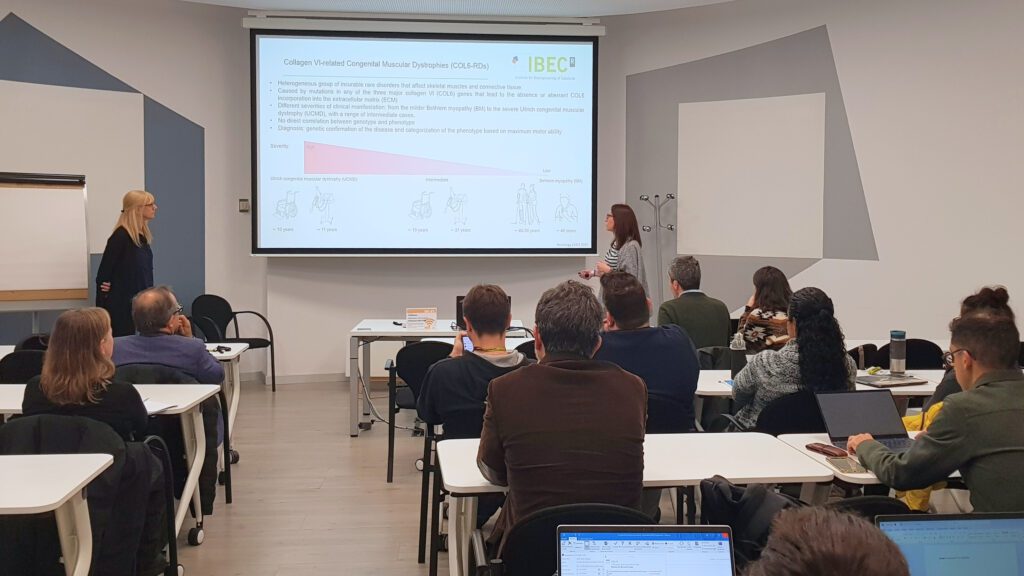
IBEC and SJD Barcelona Children’s Hospital strengthen their collaboration with a day of translational innovation
The Institute for Bioengineering of Catalonia and the Sant Joan de Déu Barcelona Children’s Hospital have held a joint conference to strengthen collaboration in bioengineering and translational medicine. The event, held this morning at the IBEC, highlighted innovative projects, presented a joint PhD programme and encouraged the exchange of ideas between researchers from both institutions.
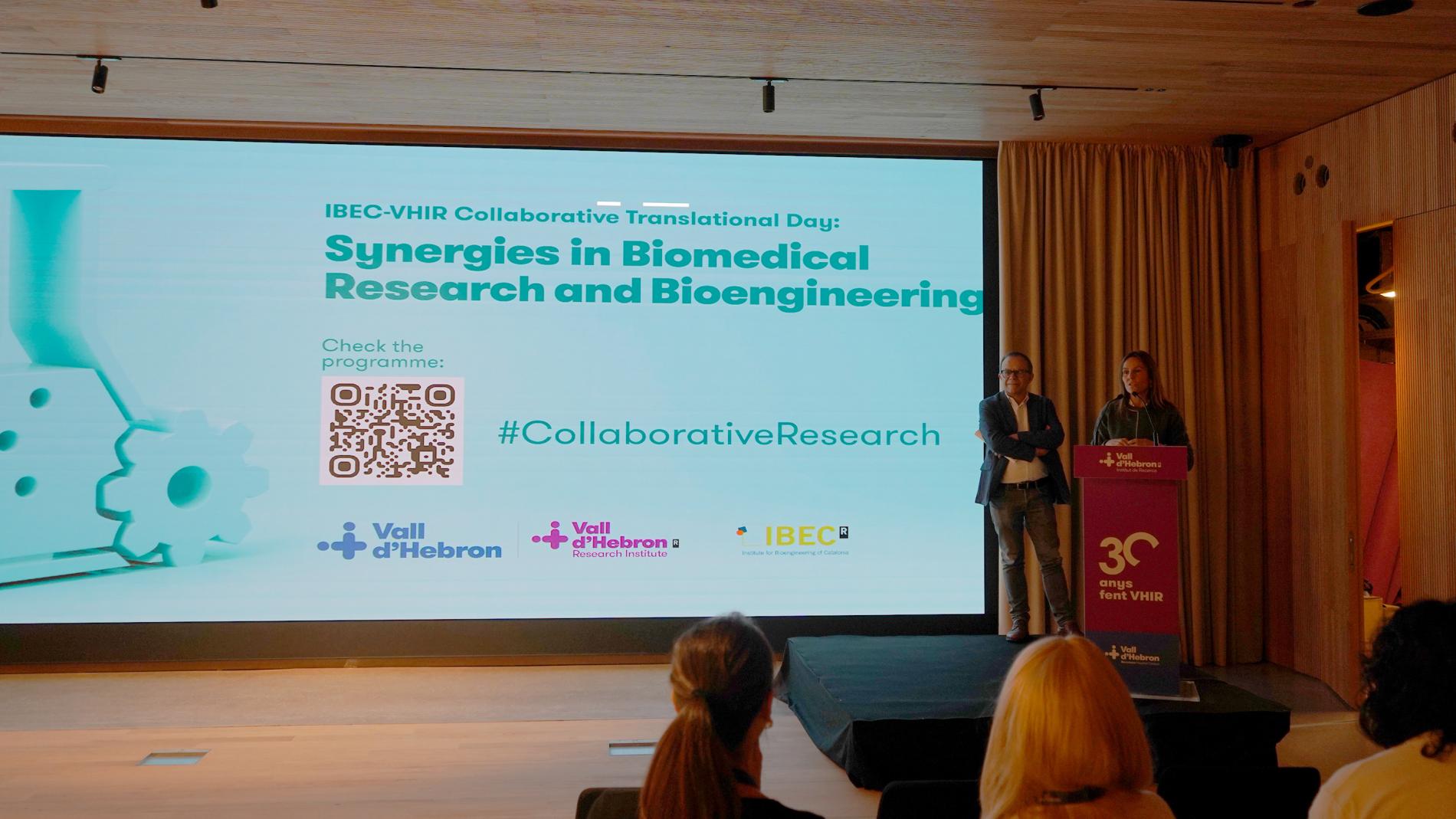
IBEC and VHIR hold a collaboration day to promote synergies
The 1st Translational Collaboration Day between the Vall d’Hebron Institute of Research (VHIR) and the Institute of Bioengineering of Catalonia (IBEC), held on 21st November, was an opportunity to learn about the projects and research lines of both institutions and to promote interaction between professionals.
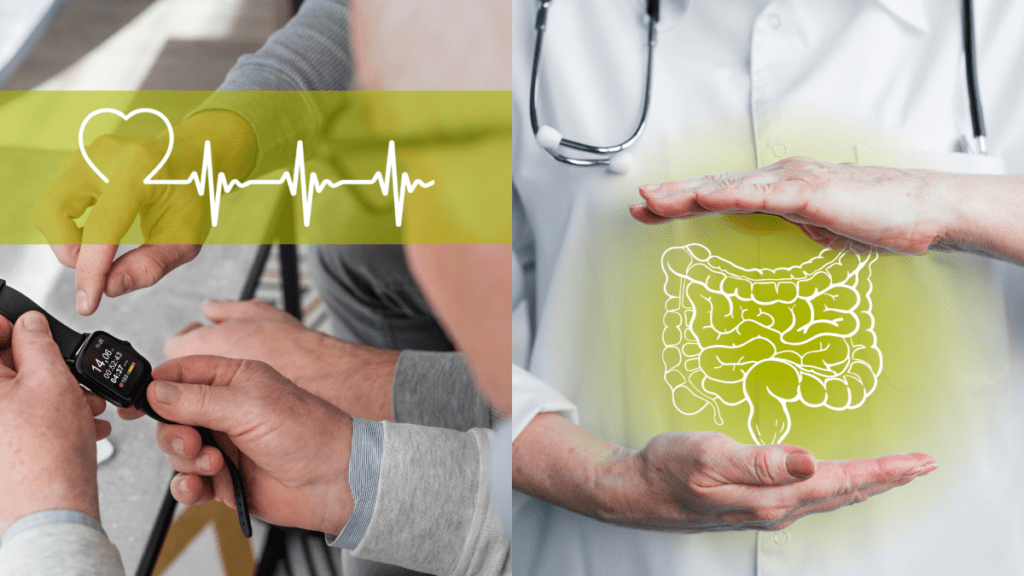
IBEC engages in two public-private partnerships for biomedical breakthroughs
IBEC and Vitala, a spin-off founded by IBEC researchers, are set to participate in three public-private partnership projects, with a combined investment nearing €4 million. These initiatives, backed by the Spanish Ministry of Science and Innovation and the State Research Agency, aim to advance remote health monitoring, create an oral drug for Inflammatory Bowel Disease, and enhance 13C magnetic resonance imaging for therapeutic research. Leveraging cutting-edge technological approaches, these endeavors aspire to make a positive impact on the fields of medicine and biomedical research.

Cough sound analyzed to identify the severity of COVID-19 patients
A research team led by IBEC and Hospital del Mar has conducted a study to analyze cough sounds recorded by smartphones in patients with COVID-19. The results reveal cough characteristics that could offer a quick, easy, and cost-effective method for identifying the severity of the disease in patients, whether at home or in any healthcare setting. This work also paves the way for utilizing this model in the ongoing monitoring of patients with persistent COVID-19 and other respiratory pathologies.
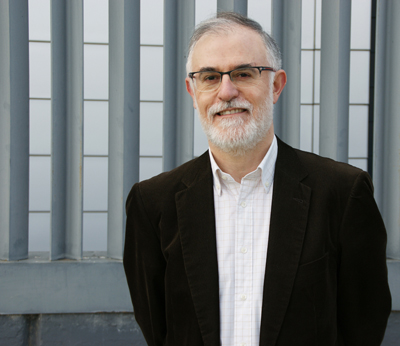
Raimon Jané and spinal cord injuries in the media
Raimon Jané, group leader at the Institute for Bioengineering of Catalonia (IBEC) and professor at UPC, appears in the media for the development of a new methodology, using ‘smartphones’, which allows determining, objectively and quantitatively, the function of trunk in patients with spinal cord injury.
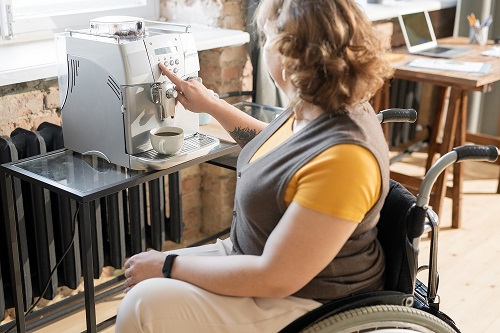
New methodology using smartphones to quantify trunk function in patients with spinal cord injury
Researchers from the Institute for Bioengineering of Catalonia (IBEC) and the Institut Guttmann – Neurorehabilitation Hospital, develop a new way of relating the level of spinal cord injury with trunk function, in a quantitative and personalised way.
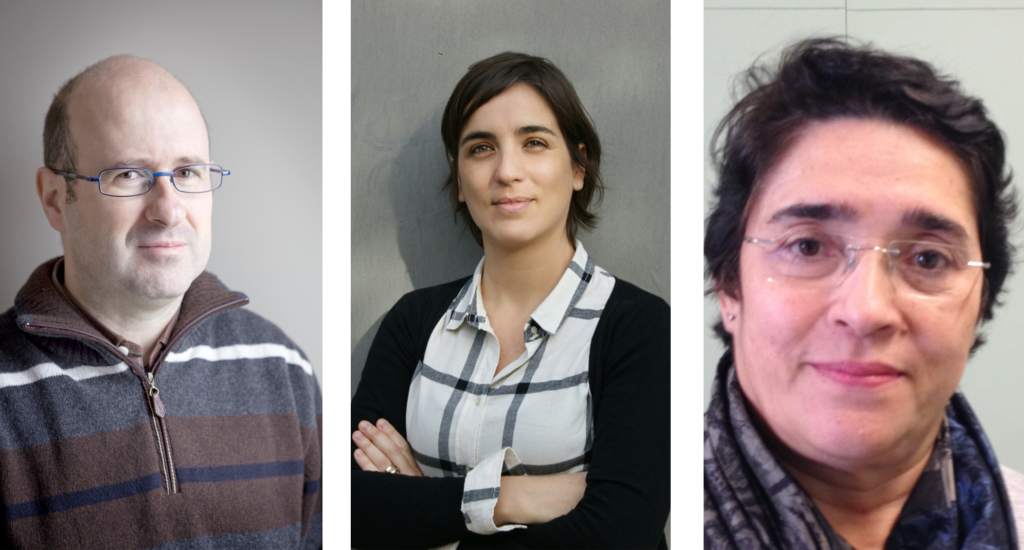
Bioengineering against COVID-19 receives a new boost thanks to “La Marató”
Three projects of the Institute for Bioengineering of Catalonia (IBEC) will receive funding from “La Marató de TV3” to investigate different aspects of COVID-19. Thanks to the contributions received, the experts will deepen their understanding of the disease and its possible therapeutic solutions, study improvements in patient care processes, develop a system to predict the evolution of the respiratory system, and advance in the treatment of patients with pneumonia derived from COVID19.

Assess lung disease using non-invasive methods
The team of researchers led by Raimon Jané, group leader at IBEC and researcher at CIBER-BBN, together with international collaborators from imec in the Netherlands and a hospital in Belgium, develop an innovative procedure to assess lung diseases.
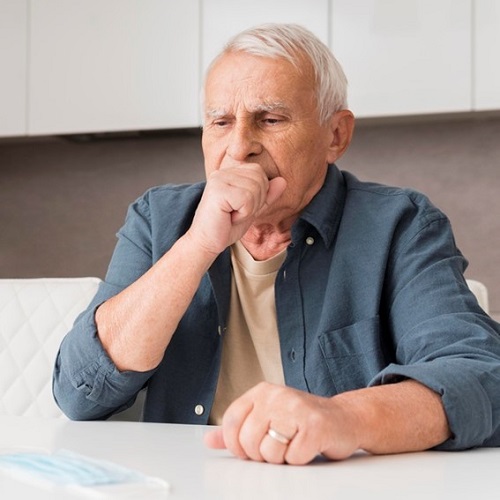
IBEC researchers develop a non-invasive method to assess pulmonary diseases
A team of researchers led by Raimon Jané from IBEC, together with international partners at imec in the Netherlands and a Hospital in Belgium, develops an innovative procedure to evaluate pulmonary diseases.
Jobs
Predoctoral researcher at the Biomedical Signal Processing and Interpretation (BIOSPIN) Research Group
Ref: BIOSPIN // Deadline: 20/01/2023
Postdoctoral researcher at the Biomedical Signal Processing and Interpretation (BIOSPIN) Research Group
Postdoctoral / Deadline: October 07th 2022


 ibecbarcelona.eu
ibecbarcelona.eu